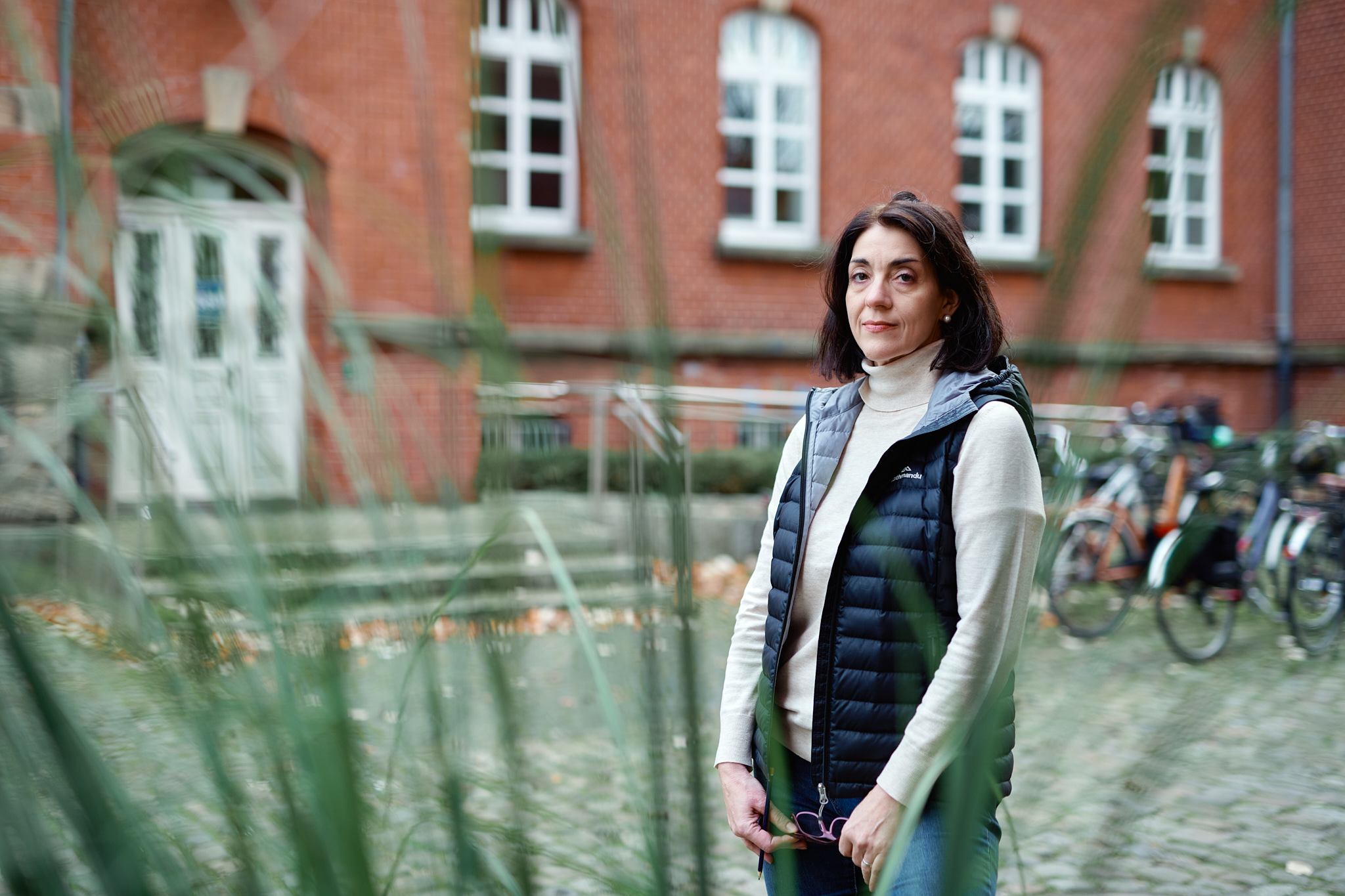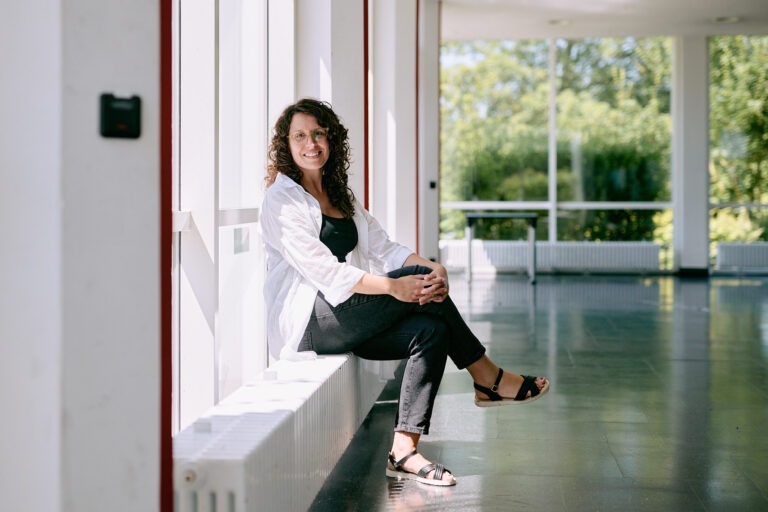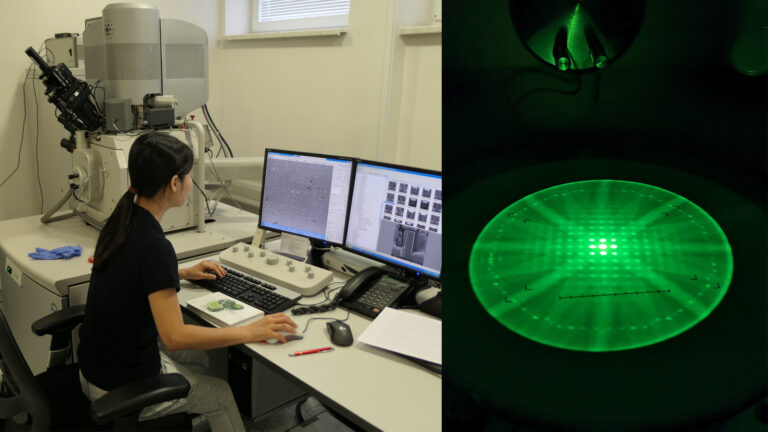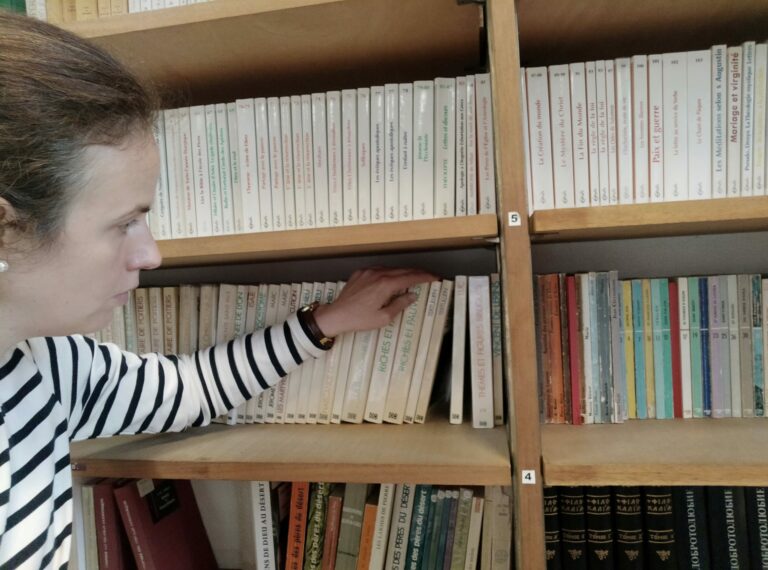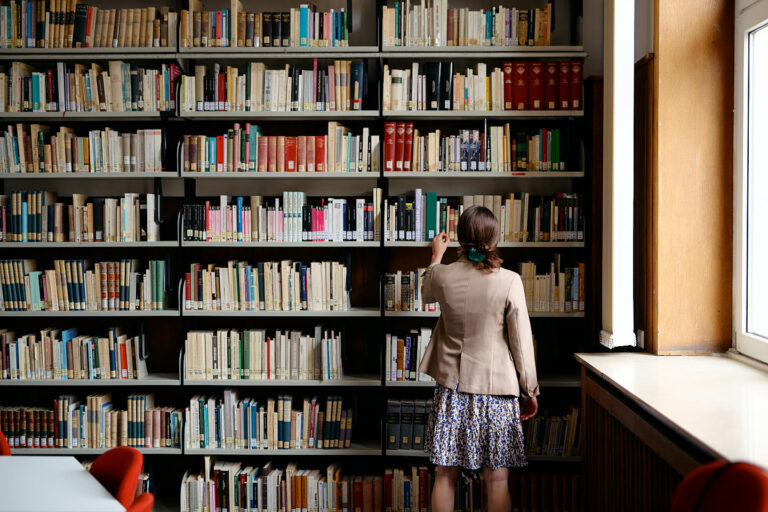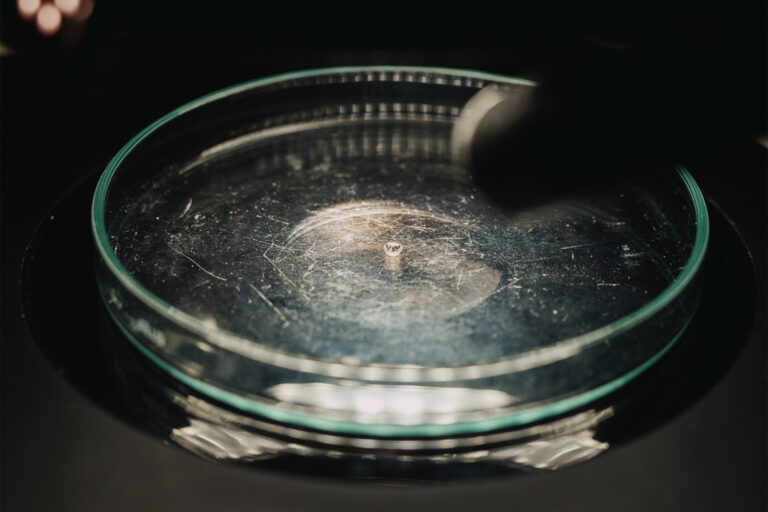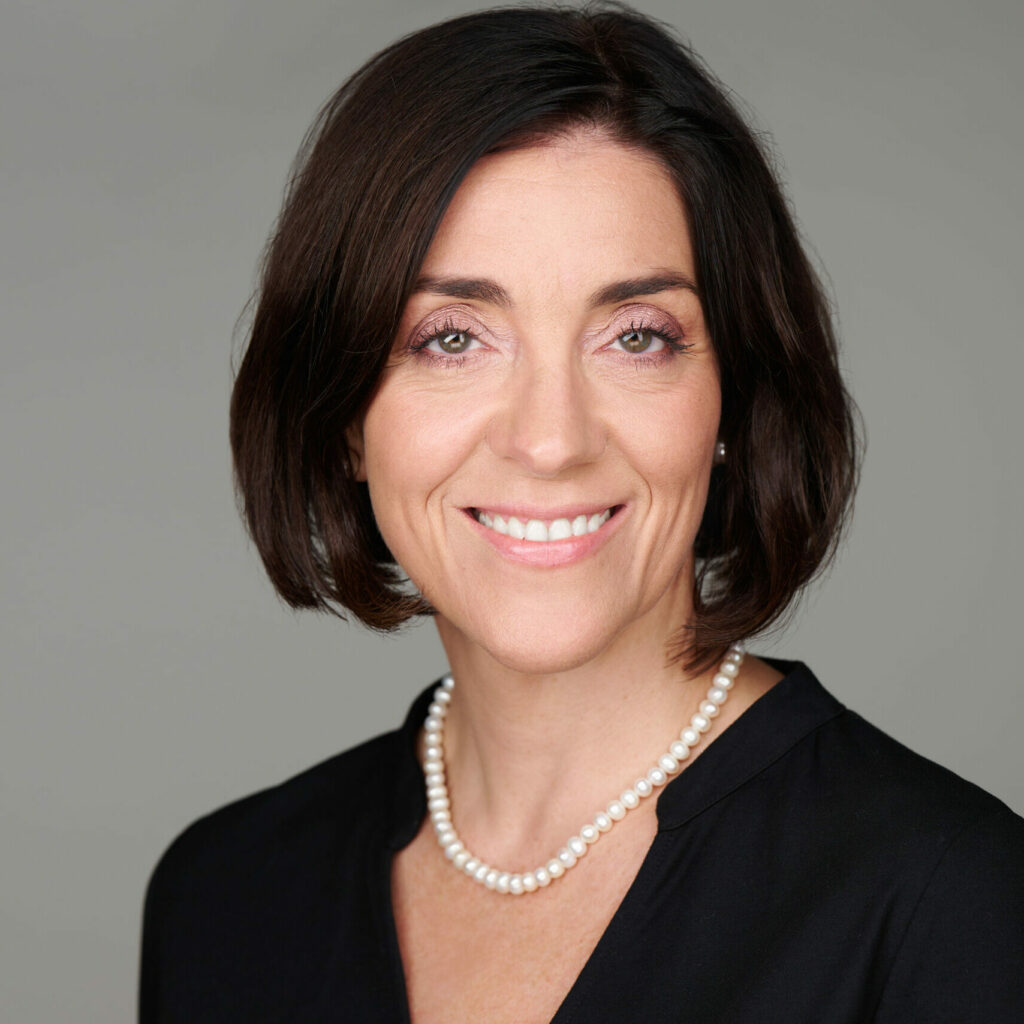
Democratic Public Discourse and Getting Six Hours of Sleep – an Interview with Dr. Judit Bayer
In the series “33 questions” we introduce, in no particular order, our WiRe Fellows who are currently working on a research project here at the University of Münster. Why 33? Well, if we think of the rush hour of life, it is kind of the age that lies in its middle. And we also like the number😉.
In today’s episode we are speaking with Judit, media lawyer and passionate lover of freedom and tea.
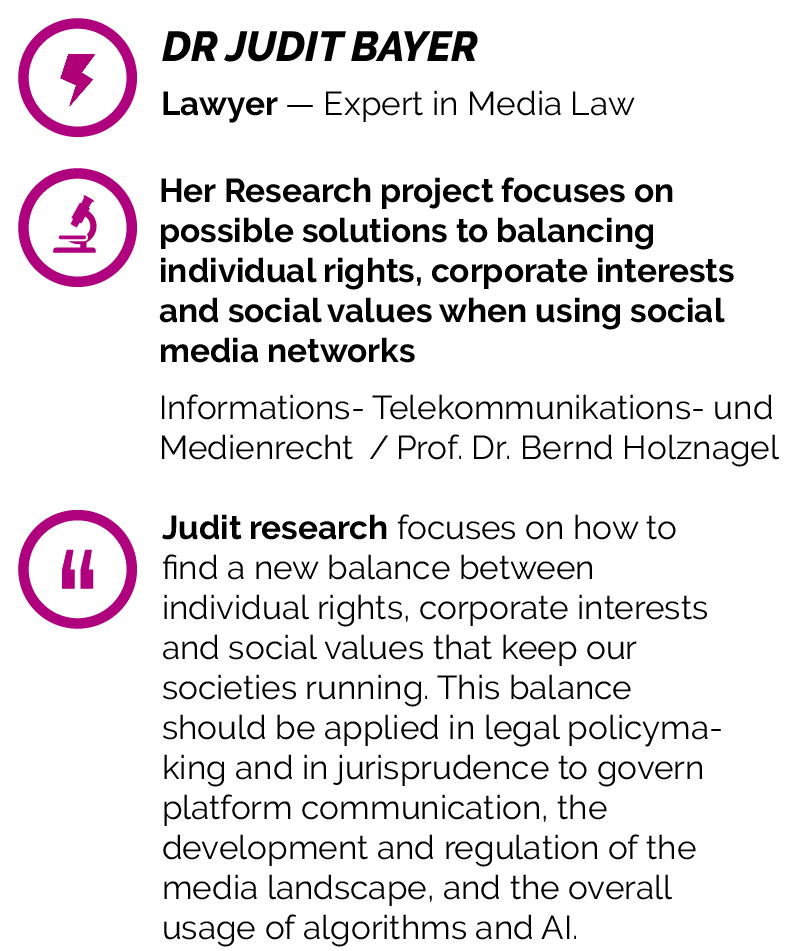
1. What motivated you to work in the field of law?
As a lawyer, I found inspiration in discussing why a law is like it is. Why does a society has the rules that they have? Why not others? Could law be better? And, as a purpose, I found interest in nothing else than making life better for as many people as possible, for which aim the protection of human rights seemed to fit the best.
2. Describe your daily work in three words.
I read, I write, I speak.
3. Describe your research topic in three words.
Media for democracy.
4. What is the best experience you have had as a scientist / researcher?
Experiencing the solidarity between likeminded researchers in other countries, and seeing when your research makes an impact in the “outside” world.
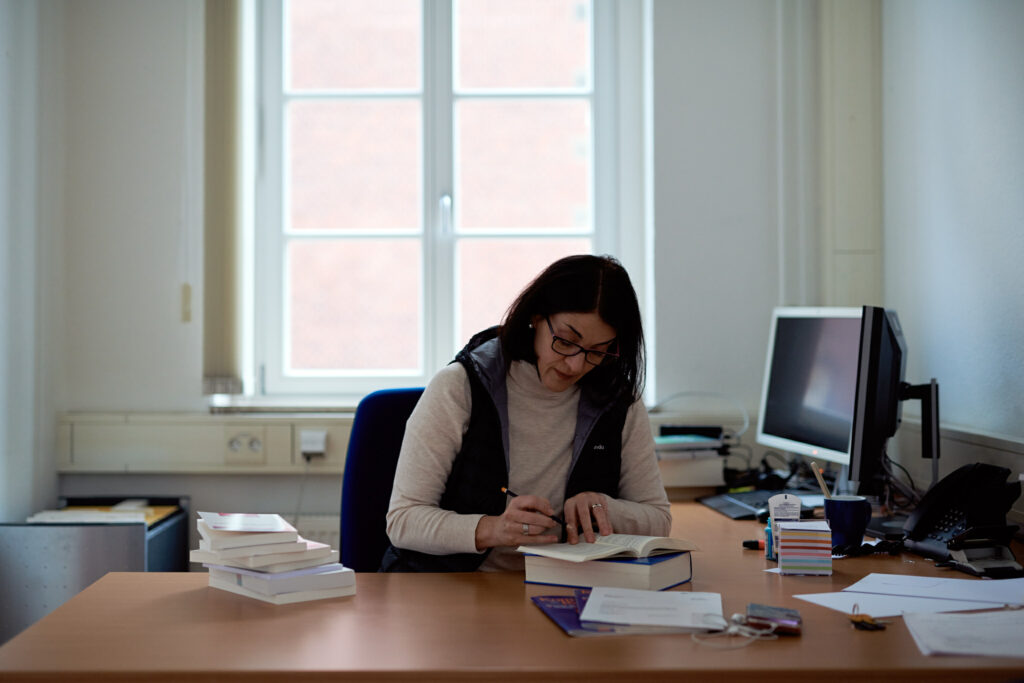
5. What was your biggest research disaster?
Once, as a trainee, I organised a conference. The American organiser wanted to discuss how ethnic data should be collected, in order to build databases for the fight against discrimination. The invited participants all presented about why ethnic data mustn’t be collected, to avoid that databases are built which are then used for discrimination. The organiser was furious that none understood his assumption. However, the “catastrophe” emphasises the deeply-rooted cultural differences between European posture towards privacy and the American lassez-faire policy.
6. Which (historical) important scientist would you like to have dinner with? What would you ask?
Einstein. I would discuss with him artificial intelligence.
7. If time and money were no object: Which research project would you like to do?
I would study the human mind in operation with all possible new technological tools, including AI, Big Data processing, and learning everything about human nature. However, there would be still another concern: that this knowledge will get then into the wrong hands! So then, I would have to make sure that the knowledge is disseminated to be known by everybody, to be prepared against misuse – and then we are at my current research project 🙂
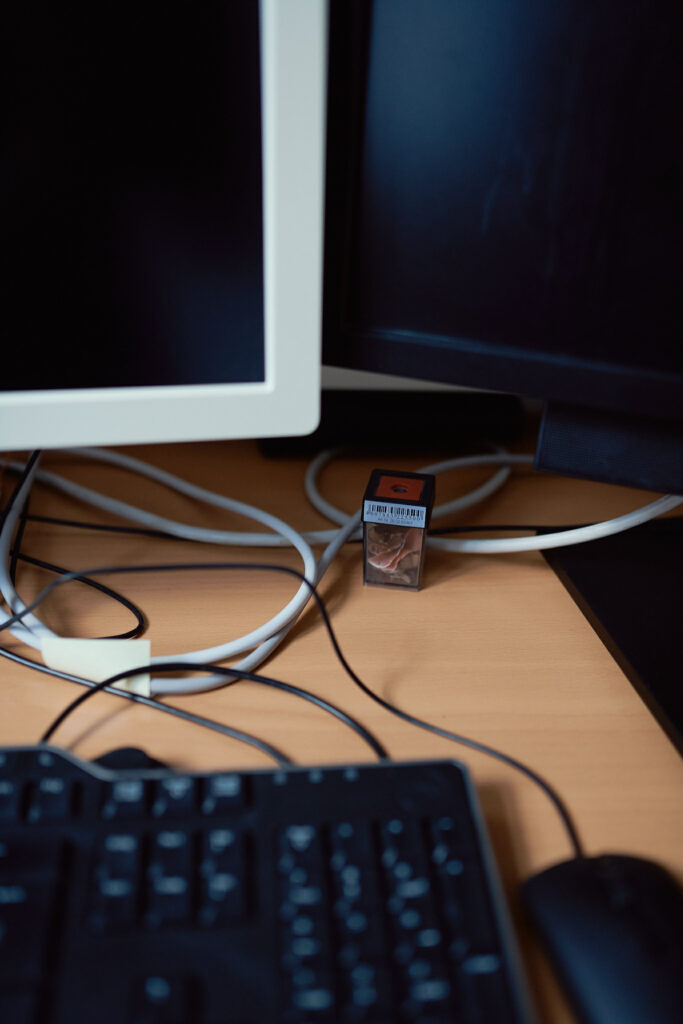
8. What is your favourite research discipline other than your own?
Psychology.
9. What do you consider the greatest achievement in the history of science / your field?
In my field I consider the greatest achievement to realise freedom of expression and of the media, which led to democratic public discourse. As a next step, a global, organised, inclusive public communication would be the ideal tool to put an end to wars and hostility between groups.
10. Which experience in the world of science disappointed you most?
I find most disappointing the system of academic publications. It is well documented and known how unjustly this system works. Academic journals publish papers that they receive for no charge, that are peer-reviewed for no charge, and yet they are published behind paywalls. Authors edit their own works, so there is not a lot of third-party editing, either. Publication is often fully online, therefore, no printing costs. This distorted system shocks everyone who understands its logic. The growing practice of open-access publishing is a good trend, however, several big publishers charge an extra open access fee.
11. How did you survive your PhD time?
I was working so much, I did not have the time to think about it. I was employed at a university as an assistant lecturer, other than where I pursued my PhD, and besides I launched an NGO for press freedom. Then, I won a full-time fellowship at a third university – that gave me the kick to quit my job. For almost a year, I could focus finally only on my research. I wrote every day 7-13, then I did other things in the afternoon. I also sat back to write for 1-2 hours in the evenings after a going out with my friends. That was one of the best periods of my life.
12. How did you imagine the life of a scientist / researcher when you were a high school student?
I thought it was ridiculously boring, to be immersed in a tiny fragment of reality, to be lost in the details, and that only losers do it. 🙂
13. Is it actually different? In what way?
Actually, it is the other way around :-D. The deeper you immerse, the more exciting your journey becomes!
14. What direct or indirect relevance does your research have for society?
Free and plural media is indispensable for democratic functioning. Democracy is the proven best form of governance, but it has lots of conditions, and a functional media system is one of them. The structure of public communication has completely transformed in the past decades. Social media networks contain enormous opportunity, but they can also be easily misused to pursue particular political, or economic purposes. My research focuses on how to find a new balance between individual rights, corporate interests and social values that keep our societies running. This balance should be applied in legal policymaking and in jurisprudence to govern platform communication, the development and regulation of the media landscape, and the overall usage of algorithms and AI.
15. What do you like most about the “lifestyle” of a scientist? And what least of it?
I like several things “the most”:
– the freedom that I experience with defining how I share my time between my tasks.
– that I can write and share and express my ideas.
– that I meet interesting people.
The least:
– the long gap between my work and seeing the result or reward for it.
– that my work never “ends”. I cannot put down my thoughts at 5 p.m.! I often work at weekends and nights, too.
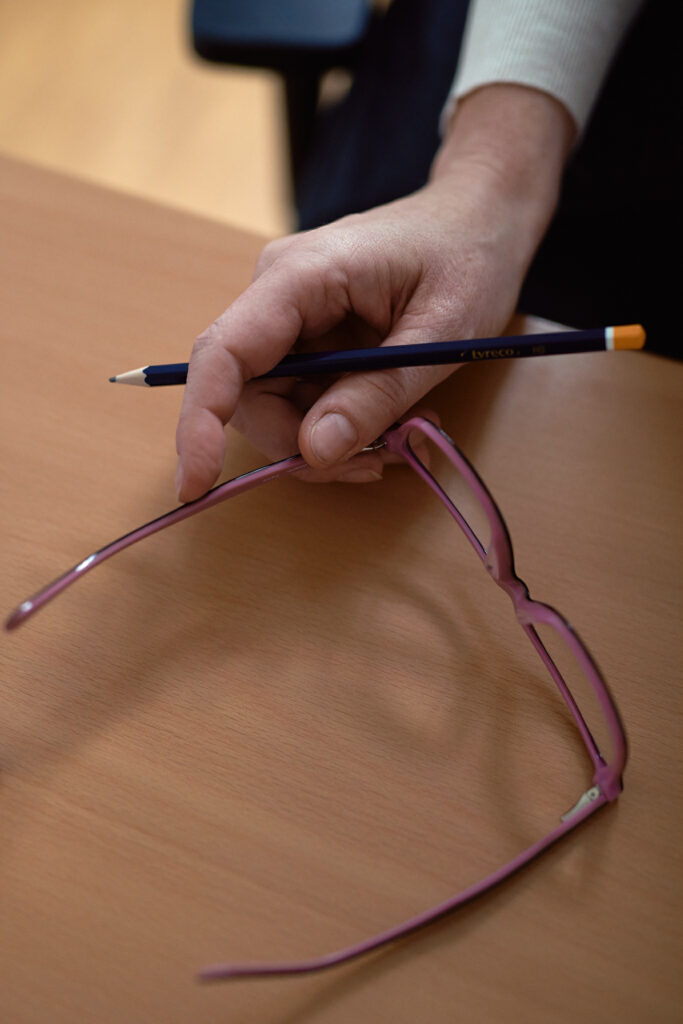
16. Do you think your career would have evolved differently if you were a man?
Very, very much differently.
The older I get the more I see what a different life men live.
17. If you were the research minister of Germany, what would you do to improve the situation of women in science?
The change must start not only in science, of course: it is only the peak. I would ensure that more women are in top leadership positions in universities, research institutions, in doctoral commissions, etc.
Specifically in science?
Have gender-blind cross-checks for proposals, applications, all intellectual work that is evaluated.
Quotas are very debated: I personally support their temporary use. However, as a minimum, only-male or only-female commissions or boards with power should be unacceptable, and that should be clear to everyone.
Have positive actions for parents:
Have nurseries at universities, and many small nurseries close to everywhere. Each conference must organize childcare for the children of the invited researchers. Have less meetings in afternoons (Germany is quite good in this!).
Skip age limits for research grants.
Develop an understanding that having a child takes not only the standard one year from one’s life: it takes time before pregnancy, during pregnancy, every single day after the child is born. Consider giving extra time allowances for people with children. (Including fathers – and expect fathers share the parenting).
Educate men in science:
To accept female viewpoints and ways of presenting, etc.
To not accept groups without at least 1/3 of female members.
To share responsibility, emotions, work.
18. If you had a daughter, what would you advise her not to do?
Regarding her career, I could give no more specific advice than to my son. Because, I have no answers to those specific female challenges that I struggled with. I just did my best to navigate, and I have no idea how I could have done it better. All our decisions have a price tag, and I would not want to influence her decisions, because the price will have to be paid by herself. Besides, I think, it is time that we educate our sons, rather than put ever more burden on our daughters :-D.
I would advise both my daughters and sons to follow their instinctive preferences, and not let themselves be diverted by others’ rational advices. To do what they are really interested in, and persevere in that, never give up, trust their gut feelings and their abilities. And respect others, too, on their way.
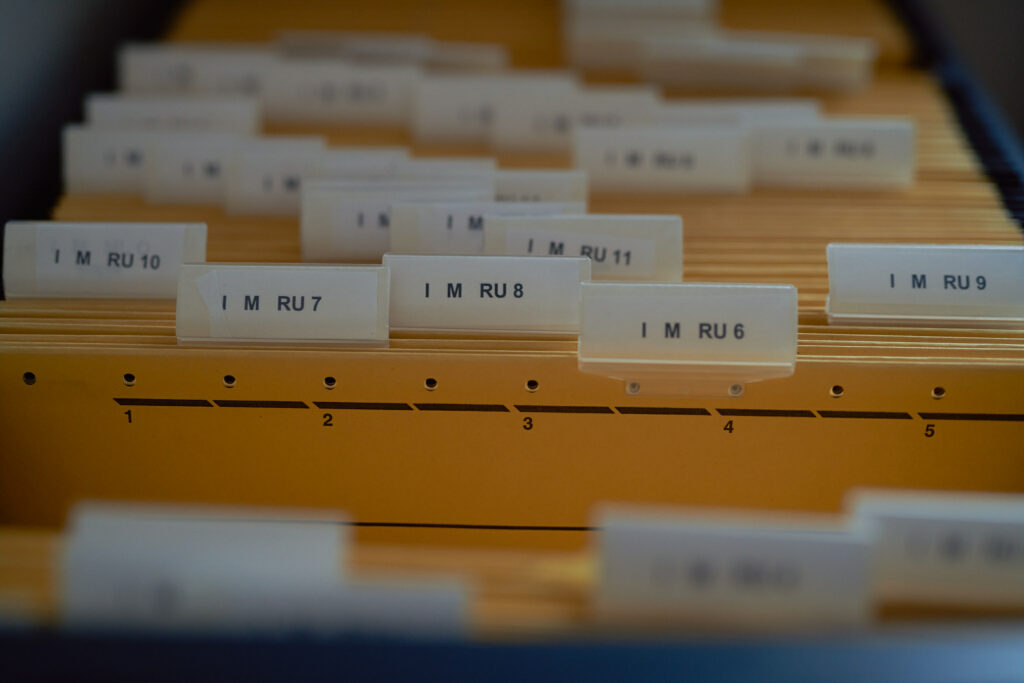
19. How would you explain your research area and topic to a child?
People share their ideas and their knowledge, and ideally, they also listen to each other. If this works well, then people can take wise decisions together. Some people lie or hurt others – if these will be the loudest, then more people will be unhappy, and the common decisions will be not so wise, because they are based on lies. Today, Facebook and other networks govern whose voices are better heard. The liars, or “clowns” are often very interesting, and with more listeners, Facebook can earn more money. So they push these liars and clowns to the fore, to earn more money. But this is bad for the society, because those silly or untrue or hateful voices are not helpful to take wise decisions.
Every person has human rights. If those get violated, the person can go to court. For example, if somebody is harassed or if somebody comes into your house without your permission. If the harm is very small, people are not interested in going to court. But when very small harms happen to millions of people, every day, then the overall freedom of mankind diminishes. For example, when on social media, your data are collected and used without your permission. Or, when people are told ugly words because of their opinions, or because of their identities. Then they feel sad and do not want to speak later, but do not go to court. We hoped that new technology, for example, artificial intelligence, will improve our lives, and not make it worse. So we have to stand up for the protection of those small rights, and not just give them up.
20. What is the biggest challenge for you when it comes to balancing family and career?
Spending time with the children. Even when you have the opportunity to get help, it still is a sacrifice: you do actually want to be with your child, to spend holidays and weekends with them. Getting more help from their father feels better than having a babysitter.
What I find a challenge is that it is impossible to bridge the gap with those who have no children: their life experience is very different. What free time, or a holiday means for a researcher with and without children. We all have 24 hours a day: those with a family share their hours with their children.
21. How do you master this / these challenge(s)?
Get six hours sleep and lots of help from others.
22. How often do you as a friend / partner / mother / daughter feel guilty when you have to meet a deadline – again?
Always, but here is a story: once, when my daughter protested that I slipped away the third evening in a row with my laptop, my husband dropped the words: “Mummy has a deadline”. Then my daughter (maybe 6 years old at the time) completely changed her tone: “Mummy, why didn’t you tell us that you have a deadline? Of course, we can understand that! Then you should go work! We do the bedtime ourselves!”
23. How did you imagine your future as a child? What profession did you want to pursue?
A doctor, a cosmetician, a baker in the Caribbean, a singer. And as an adult, a national park ranger.
24. How do you keep your head clear when you are stressed?
Go for a run, walk, or meditate. Listen to music. Breathe.
25. What is your favourite German word?
“Gemütlichkeit”.
26. What makes you most happy about the world?
Its endless possibilities and diversity, and the many correlations that we still did not discover!
27. What worries you most about the world?
The selfishness of those in power.
28. Your favourite TV series?
Star Trek, Dr. House.
29. If someone asks you about your age, what do you respond spontaneously?
I often accidentally say a few years more than I actually am. This is perhaps because I always think in advance, my thoughts are often in the future.
30. Which hobby have you given up for a life in academia?
None. I do not see why you would have to give up any of your hobbies for academia. I gave up my hobbies for the family. Perhaps, because I had my career before I had my family?
31. What is your favourite place to relax from research during the pandemic?
Just a walk in the nature.
32. What is your favourite place in Münster?
At the Aasee!
33. What surprised you most about the University of Münster?
How relaxed most people are!

